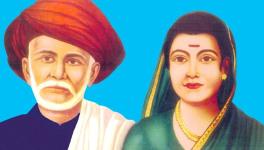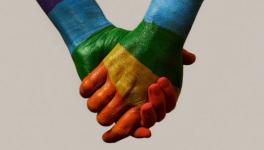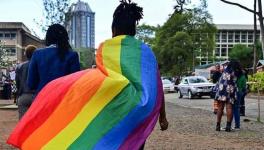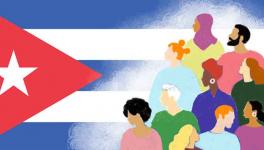NMC Declares Conversion Therapy to ‘Cure’ Homosexuality as Professional Misconduct, But is That Enough?
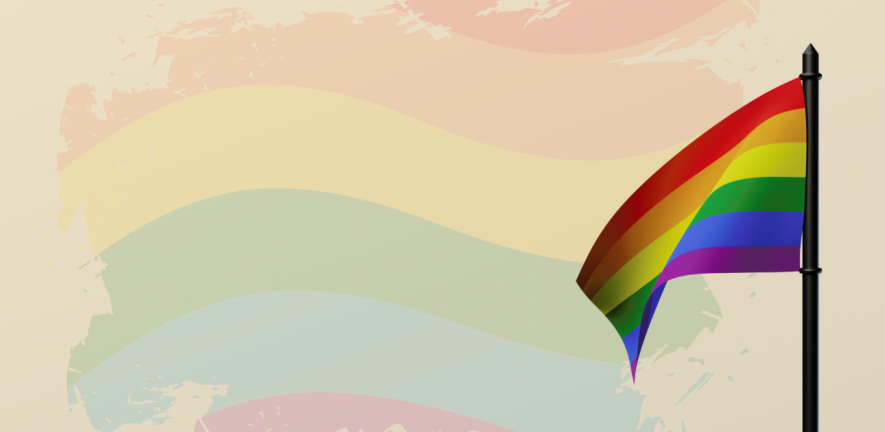
A few days before the fourth anniversary of Navtej Singh Johar versus Union of India (2018), wherein the Supreme Court read down Section 377 of the Indian Penal Code that criminalised consensual sex between same-sex adults, the National Medical Commission (‘NMC’), the highest regulatory body of medical professionals in India, in a significant move, has written to all State Medical Councils to declare conversion or reparative therapy (also referred to as gay cure therapy) as professional misconduct under the Indian Medical Council Act, 1956 (Professional Conduct & Ethics) Regulations, 2002.
The communication said, “In compliance of order July 8, 2022, Ethics and Medical Registration Board, National Medical Commission has decided that conversion therapy will constitute a professional misconduct under the Indian Medical Council (Professional Conduct Etiquettes and Ethics) Regulations, 2002’’.
Conversion therapy, aimed at falsely changing the sexuality of a person, imposes psychiatric treatment, use of drugs, electroshock therapy and often physical violence and exorcism on the person to allegedly cure them.
Conversion or any kind of therapy to allegedly cure the sexuality of a person is based on the premise that a specific kind of sexual orientation and gender identity is a disease.
This direction comes in adherence to the order by Justice N. Anand Venkatesh of the Madras High Court in S. Sushma & Anr. versus Commissioner of Police & Ors. (2021). In this case, the court directed the NMC to take disciplinary action against medical practitioners performing conversion therapies.
The court also pointed out that these therapies aiming at “correcting” non-heterosexuals to their so-called “normal” counterparts, with full impunity, are often aided by law enforcement. The high court’s direction was timely as India still does not have a law explicitly banning these practices.
Also read: A big thank you for Justice Anand Venkatesh
Conversion therapy lacks scientific evidence
Conversion or any kind of therapy to allegedly cure the sexuality of a person is based on the premise that a specific kind of sexual orientation and gender identity is a disease. However, the Indian Psychiatrist Society has already declared that homosexuality should no more be regarded as a psychiatric disorder. Treatments to reverse the sexual orientation of a person, the IPS noted, are based on a premise that is erroneous. In fact, the World Psychiatric Association declared that these treatments are without any scientific evidence. Any conversion or aversion therapy in this regard is disapproved.
Further evidence to support this flows from the American Academy of Child and Adolescent Psychiatry, which has already clarified that it has found no evidence to support the application of any “therapeutic intervention” that a specific sexual orientation, gender identity or gender expression is pathological. The same lacks scientific credibility and clinical utility, and often leads to an increased risk of aggravating mental health conditions in the youth, the Academy has noted.
Standard international rights jurisprudence on the rights of the LGBTQI community is codified in the 2006 Yogyakarta Principles. It terms the use of conversion therapy as medical abuse. Principle 18 says, “Notwithstanding any classifications to the contrary, a person’s sexual orientation and gender identity are not, in and of themselves, medical conditions and are not to be treated, cured or suppressed.”
The Yogyakarta Principles also protect the right to self-determination, which, in simple terms, is the right to self-identify. This right has been found in the right to privacy, Article 21 of the Constitution, and has been reiterated by the Supreme Court in Justice K S Puttaswamy(Retd.) & Anr versus Union of India & Ors. (2017) as a fundamental right to privacy.
The United Nations (‘UN’) independent human rights expert on protection against violence and discrimination based on sexual orientation and gender identity observed earlier this year that corrective rapes and conversion therapies have profound physical and psychological trauma on transgenders. The UN mechanisms on torture have even considered those measures as acts of torture or cruel, inhuman or degrading treatment.
It is not enough to declare them as professional misconduct. It should be banned explicitly, and stringent measures should be taken against practitioners performing it, because often the failure of these treatments leads to suicides.
Even though India has not ratified the UN Convention against Torture and Other Cruel, Inhuman or Degrading Treatment or Punishment, Article 21 of the Constitution would still prohibit those acts resulting in torture or degrading treatment.
Also read: Why India must criminalize gay conversion therapy
Transgender Protection Act gives paramount importance to medical procedures, violates NALSA guidelines
However, the Transgender Persons (Protection of Rights) Act, 2019 and the Transgender Persons (Protection of Rights) Rules, 2020 were meant to not just deal with discrimination against the transgender community, but also address the progressive realisation of their civil and socio-economic rights. They fell short of the guidelines of the Supreme Court established in NALSA versus Union of India (2014) that clearly stated that any kind of medical procedure should not be a precondition to grant identity.
The NALSA judgment gave legal recognition to the third gender, which also meant that members of that community should be free to self-identify themselves. However, the 2019 Act not only violates this right because it only allows a person to be recognised as ‘transgender’, but also puts reliance on the medical procedure to grant a certificate of identity.
As per Section 7 of the Act, if a person has to change their gender, they must have to submit a certificate issued by the Medical Superintendent or the Chief Medical Officer prescribing that the person has undergone surgery. Moreover, the importance of the opinion of the medical practitioner is paramount because if they do not confirm the correctness of the certificate provided, the District Magistrate cannot issue the certificate of identity, as per Rule 6(8) of the 2020 Rules.
Conversion therapy and mental health trauma
Now that medical practitioners will be charged with disciplinary action, the question one must ask is whether this is proportionate to the harm – mental and physical – that is inflicted through these pseudo-medical practices.
These treatments are in clear contravention with the rights of privacy and human dignity. It is not enough to declare them as professional misconduct. It should be banned explicitly, and stringent measures should be taken against practitioners performing it, because often the failure of these treatments leads to suicides.
In 2020, a 21 years old queer woman from Kerala committed suicide after being forcefully sent to multiple de-addiction centres to ‘cure’ her non-heteronormative orientation by her parents. The woman, who came out as bisexual to her parents, was already suffering from depression when her parents forced her into conversion therapy to ‘cure’ her sexual orientation. Last year, a 28-years old trans activist committed suicide following alleged medical complications after a sex reassignment surgery at a private hospital in Kerala. Three days later, her partner was also found hanging.
Also read: A transgender woman’s death, and the need for urgent revamp of sex reassignment surgery
These practices also encourage what is known as “corrective rapes”; a term that was coined in South Africa. In 2015, the Times of India reported that family members in Telangana are turning into rapists to allegedly ‘cure’ homosexuality.
Dr. Aqsa Shaikh, India’s first and the only transgender nodal officer for a COVID-19 Vaccination Centre and Associate Professor, Department of Community Medicine, Hamdard Institute of Medical Sciences and Research in New Delhi, commented on conversion and aversion therapy thus: “Many transpersons have faced conversion or aversion therapy as a result of it being considered an identity disorder. Madras High Court has been repeatedly talking about banning conversion therapy. The National Medical Commission did come out with an affidavit stating that the same is not allowed and will be considered professional misconduct under the Indian Medical Council Act, 1956 (Professional Conduct & Ethics) Regulations, 2002. However, in the forms of other medical practices such as the AYUSH system of medicine, there is a loophole and we do have a lot of practitioners engaged in conversion therapy.”The continued existence of these pseudo practices, without an effective regulatory regime, will only serve heteronormativity, which, in turn, strengthens patriarchy.
Get the latest reports & analysis with people's perspective on Protests, movements & deep analytical videos, discussions of the current affairs in your Telegram app. Subscribe to NewsClick's Telegram channel & get Real-Time updates on stories, as they get published on our website.










